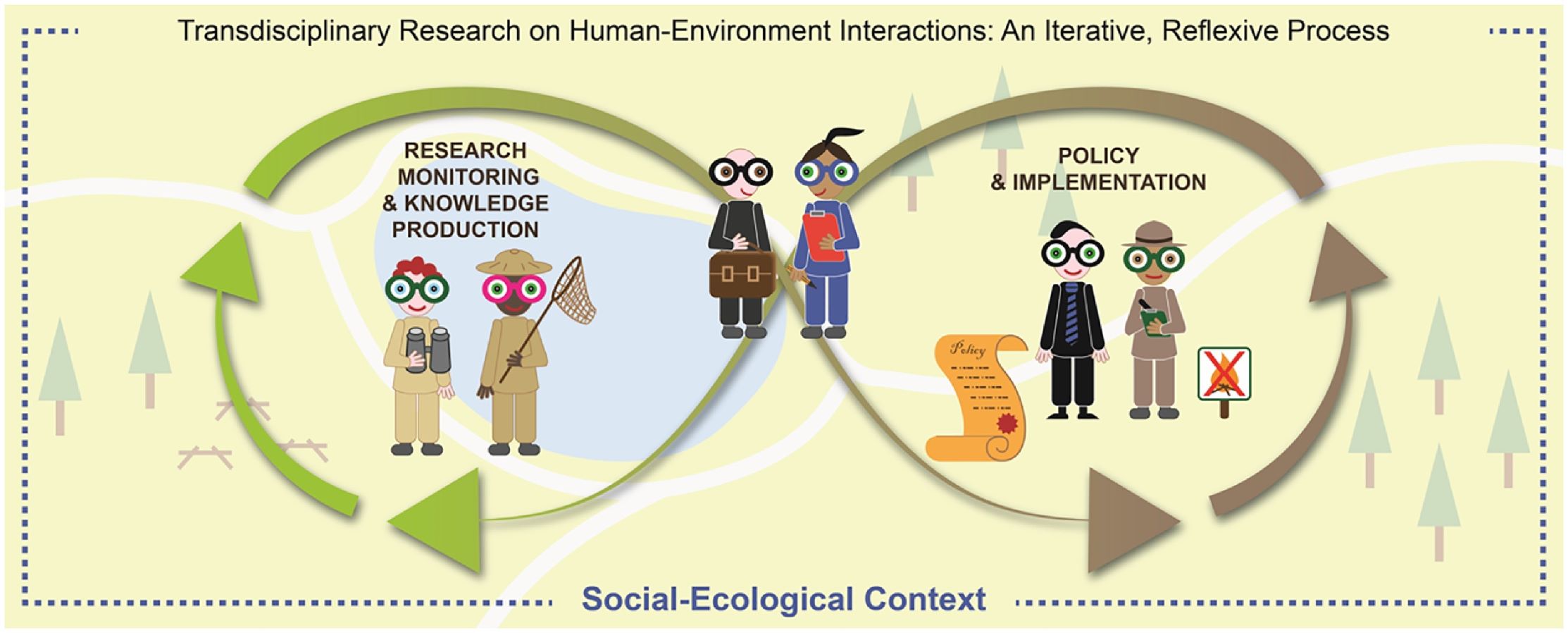Researchers in multiple, related fields that address complex social and environmental challenges, have shown ongoing enthusiasm for applying transdisciplinary social-ecological systems research to promote sustainability. However, few studies have evaluated the effectiveness of social-ecological systems approach, assessed its achievements, and identified challenges to its implementation toward knowledge production for environmental conservation. Here, the results of a qualitative, participatory evaluation of several social-ecological systems projects across Europe are reported, using an evaluation methodology tailored to transdisciplinary projects. Sixty-six stakeholder interviews were conducted at four designated Long-Term Socio-ecological Research (LTSER) platforms – Danube Delta and Braila Island (Romania); Cairngorms (Scotland); and Doñana (Spain). Using qualitative analysis, data from interviews were synthesized and then researchers returned to the sites to present findings to stakeholders in focus group discussions in order to incorporate their feedback into conclusions. Although particular scientists at each platform have taken on entrepreneurial roles to operationalize transdisciplinary science, a business-as-usual attitude tends to dominate institutions, limiting meaningful progress toward transdisciplinary objectives, including: integration of social science research, giving non-researcher stakeholders a more meaningful role in advancing relevant research, and improving knowledge exchange among different stakeholder groups, among other issues. This evaluation reflect modest advancements toward reaching the goals of long-term, place-based, social-ecological systems research. In most cases, the components for creating dynamic "research-implementation spaces" are present: a charismatic leader, high-quality research institutions, relationships with stakeholders, and ongoing monitoring, research, and traditional knowledge on a variety of place-based topics. However, creating links, tools, communication, and coordination among these essential parts so that they constitute effective application of scientific knowledge to address societal challenges in environmental sustainability presents many challenges. In short, while all the components of transdisciplinary social-ecological systems research exist at the sites, there is no overarching strategy to link long-term planning and funding, knowledge integration, and priority-setting with stakeholders to ensure the relevance of research for policy and practice. informacion[at]ebd.csic.es: Holzer et al (2019) Evaluating transdisciplinary science to open research-implementation spaces in European social-ecological systems. Biol Conserv 238 DOI 10.1016/j.biocon.2019.108228
https://www.sciencedirect.com/science/article/pii/S0006320719305397?via%3Dihub#abs0005








 Las altas temperaturas están provocando que las lagunas y las marismas de Doñana pierdan agua rápidamente
Las altas temperaturas están provocando que las lagunas y las marismas de Doñana pierdan agua rápidamente



